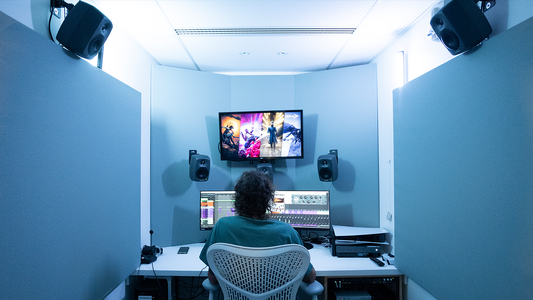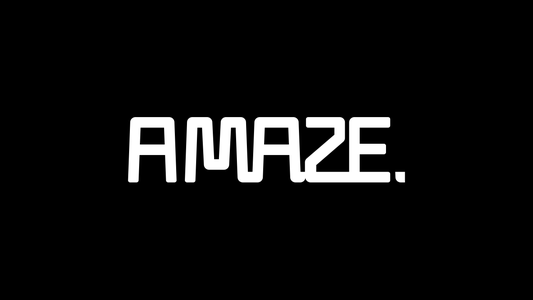Wow has it been that long? It’s been almost a year since I started my own independent game development studio.

I’ve learned a lot in one year and wanted to sum it up in this blog post and throw in a few tips along the way. Not that I’m an expert after one year, far from it, but hopefully new indie game developers will find this useful and encouraging. Some tips may come as a bit of a surprise!
Humble Beginnings – Starting Out
It wasn’t really a planned decision to start my own studio, it sort of just evolved. I have been into video games since my teenage years and it was gaming that got me started as a young programmer back in the 1990s.
After graduating from university, I did what most people do. I went and got a job. It wasn’t in the gaming industry either. I started out as a junior developer for an IT consultancy. I enjoyed it, a lot! So much so that as my career progressed, 11 years flew by and I found myself as a freelance contractor writing financial algorithms for one of the largest Hedge Funds in Europe. To enable me to freelance, I setup my own company, called it Wall West and hired an accountant. After my contract finished last April, I decided to take a short break to take stock and decide on what other things I might want to do with my life. The question of passion was a pertinent one. I was passionate about programming I was sure of that, but what else?
After graduating from university, I did what most people do.
I went and got a job.
I enjoyed helping other coders develop their skills as part of previous roles, so I decided to start my own Code Academy to run code bootcamp courses and offer private tuition classes. While I waited for a few students to sign up, I thought I’d make a casual iOS game because I had some free time. I enjoyed that creative process more than expected and churned out 3 games in rapid fire succession. They weren’t amazing games, but I learnt a lot from the process and tried to raise the complexity and quality with each new title. I wanted to make better games and learn more about the gaming industry, so that’s how Wall West started. I like to say it was started on 1st April 2015.
I am now working on our latest game – Ghost Dash: Scared Of The Dark. I tried to get really creative with the look and feel of the game, to give it a certain type of atmosphere, an adventurous style of game play with a mystical back story.
So What Have I Learnt Over The Last Year?
I’ve learnt a lot over the past year and here are my top tips for those thinking of starting their own game studio. So in no particular order…
Plan Your Finances
If you are planning to keep your day job and keep game development as a hobby you can skip this one. However if you are going to be making games as your main “job” then it pays to understand your finances. No pun intended. Even game developers need to eat and pay rent!
Start with what’s coming in and what’s going out each month. That’s your cash flow and it’s the most important thing. Even if you have savings, without a healthy cash flow that leaves you positive at the end of each month, you will eventually go into the red. Next, look where can you trim costs. And trim them. Making cut-backs will buy you more time. More game development time! Once you understand your monthly flows, take your savings into account and calculate your survival period.
Making cut-backs will buy you more time.
More game development time!
At this stage you should have a pretty good idea whether you can sustain yourself and for what period. If it looks bad, don’t worry, you need to get creative and work part-time or freelance or look for investors or consider crowd funding. There are options! The main aim is to understand your finances from the start and make informed decisions about how you will run your game studio.
Get A Cleaner
This goes totally against trimming costs, but you will be busy making games and getting a cleaner is one of those things that won’t cost a lot but will keep your home ticking over nicely. When you are working on games, time flies out the window and things can get pretty messy. Getting a cleaner will buy you a lot of time.
Have A Weekly Routine
When you start to plan out your first few games, there will be 1000 things to consider and you will want to work on everything at once. Then things will get overwhelming and you will burn out. In the worst case scanario, you won’t finish your game! So some planning is required but even with a project plan it’s good to have a weekly routine.
It doesn’t have to be complicated, I split each day into a morning and afternoon work session. 2 days a week I focus on my Code Academy and 2 days a week on game development, Friday’s I keep free to work on whatever I want. Friday mornings I also reserve for checking out other games, blogs and news.
Have A Monthly Routine
Hell, have a month-end process. On the first day of each month it’s a good time to take a step back, check where you are and do a bit of housekeeping. Typically this will involve:
Updating and reviewing your finances
Checking you app/website stats
Checking your app/website revenues
Checking your project plan and progress
Planning what needs to change next month and evolving your plans based on the information gathered from the above!
Finally, making backups of your work!
Get A Good Accountant (but later)
Once you get going and start to generate revenue you will need a good accountant. A good accountant should take all the stress out from keeping your books in order and paying your taxes on time. It will save you so much time and maintain your focus on making great games.
Look Out For Grants
Keep an eye out for grants. Governments and large corporations tend to support indie game developers to stimulate growth in the video games industry. Keep an eye out for such opportunities and apply for them actively. It will take time, but if you get the right grants, then it could make the difference between staying afloat during that lean early period.
Celebrate Early Wins
I remember when my first in-app purchase came through. I celebrated with a bottle of champagne! Sure it was only £0.79 and Apple was going to keep 30% of that but it was my first ever in-app purchase. It was income that my game generated and it felt awesome! It’s important to take a step back and celebrate early gains and give yourself a pat on the back every now and again. It will keep your motivation high in the long run.
Consider Other Income Streams
I know I have talked about finance a lot and that may not be very “indie” but whatever. The bottom line is unless your studio is making money, it’s not sustainable and you cannot continue creating games.
Consider other income streams; it could be offering development services to other studios who have more funding or running promotions on your website. It’s something worth considering.
Work Away From Home At Least Once A Week
If you are fortunate enough to have an office filled with fellow indie game developers, artists, PR and marketing people then great – skip this point. However if you are like me and your home is your office, then you will be spending far too much time in there! Make sure to get out and work somewhere else at least once a week. It could be a coffee shop, local library or co-working space.
I tend to pop down to Google Campus and work there for a bit. While I’m there I’ll try attend an event or talk. The sort of energy you get from being surrounded by other creative entrepreneurial people is unbeatable. The buzz you will get from it, will keep you working on your game with double the excitement!
Submit Your Game To Festivals
Start to keep an eye out for upcoming game festivals and submit your game to them! Even if your game is in alpha, if there is something to show then show it and get feedback! Even if a game festival mentions your game as a notable submission, it will create tons of awareness and anticipation for your game.
Attend Game Festivals and Any Other Related Events and Talks
Get out there and see what everyone is getting up to! You might get some inspiration or meet some like-minded people. It may also give you an opportunity to network with other indie game developers. Trade tips and get feedback on your work. Some of the best advice I got early on was from attending events and chatting with other guys that have been in the industry for many years!
Get People To Play Your Game
As soon as you have something to play, get someone you know who is into games to play it and get feedback! Ideally do this in person and watch how they play and what they do. Try avoiding explaining too much and helping them. See what questions they ask about the user interface, controls and game play. Watch their reactions and make notes. Use the feedback to refine your game. The more people you do this with the better the end product will be! Additionally they may get excited for your finished game and this will motivate you more! They may even tell their friends about it.
Marketing Your Game Is More Important Than Actually Creating It
People often ignore marketing or leave it until the last-minute. I’m not a marketing expert but now I spend 50% of my time creating a game and 50% “trying” to market it. I haven’t really cracked the marketing bit, so it’s mostly trying out different things and seeing what works.
Any Press Is Good Press
Getting press is super hard! When you start out no one wants to write about you and your game. After 1 year, no one wants to write about you and your game.



































